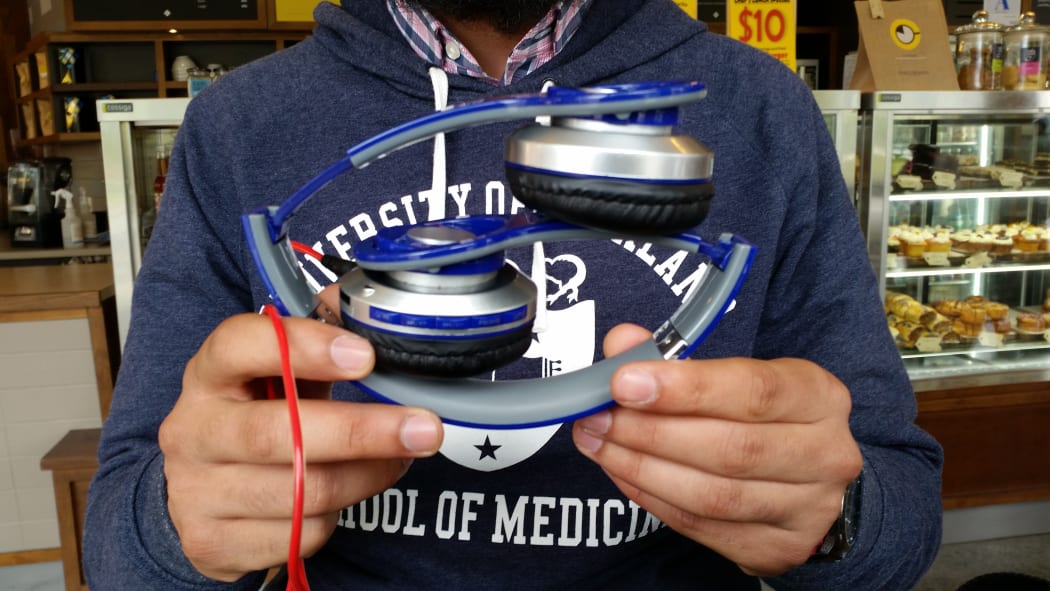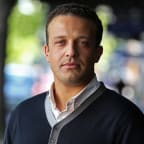A Sikh student having a coffee at an Auckland cafe has been mistaken for a terrorist, with police called out to investigate whether his headphones were a bomb.
Jaspreet Singh was sitting at Columbus cafe yesterday morning, outside Auckland Hospital, and a few metres away from the University of Auckland Medical School where he is studying to become a doctor.
Mr Singh is 21 and wears a turban as part of his Sikh faith.
He was meeting his mentor and research supervisor, Professor Luke Larkin, to talk about a research project he was keen to get involved with.
Two police officers entered the cafe 20 minutes later and asked Mr Singh to step outside. Prof Larkin initially refused on his behalf, arguing the officers were picking on him because of his race.
Mr Singh said he was shocked, but obliged and followed the police out.
"They took me outside and they explained that someone had called them and said I was doing something with wires in my laptop bag."
He said his first reaction was to laugh, and the police quickly realised he posed no danger.
"They were quite apologetic because that was quite ridiculous. They were just doing their job."

Jaspreet Singh's headphone wires were mistaken for bomb wires. Photo: RNZ/Mohamed Hassan
Police spokesperson Scott Leonard confirmed the callout was made yesterday morning.
"Someone saw a male with headphones out... and then put wires into what looked like a transistor radio in a backpack."
He said police went to the cafe and spoke to the parties involved, but decided there was nothing of concern.
Columbus Coffee general operations manager Peter Webster said the first he heard about the incident was when his marketing manager told him about RNZ's online report.
He said he was embarrassed about the racial tone of the incident, which was something that had never happened in his shop before.
"We don't like anything that would imply that any one of our customers is racist; we don't particularly like that."
If customers had any concerns about anything happening in the cafe, they should first bring it to the attention of cafe staff, he said.
"I would encourage them with any concern going on in our cafes... of anything suspicious to raise it with the store manager of the cafe, so that they can deal with the problem there and then."
He said he would be in touch with Mr Singh to apologise.
"Obviously it has nothing to do with any our staff or franchisees, but we don't like the idea of any of our customers being made embarrassed."
Behaviour 'going to breed more fear'
A barista working at the time of the incident, Tove Carland, said she was in the bathroom about 10 minutes before the police arrived and heard a woman making a phone call, sounding very nervous, and describing a man in a turban sitting across from her.
When the officers turned up, Ms Carland realised the woman had been calling the police.
She said she believed, from what she heard, it was no more than racism.
"They had no reason to call. She just said 'oh, he has a turban'... So soon after the [Paris] terrorist attacks and everything, people are being crazy."
Prof Larken, who was having coffee with Mr Singh during the incident, said people might be on edge because of what had happened in Paris and other parts of the world, but it was not good enough.
"It's that kind of behaviour that's going to breed more fear and hurt and anger."
He had called for the person who phoned the police to step forward but no-one did, he said.
Mr Singh said he could guess who had made the call because of the woman's reaction to how he looked and how he was dressed.
"I think, [based on] when I entered the cafe initially, I think I know who made the call but I'd rather not say who it is."
He said the incident was influenced by some racial bias, but had more to do with ignorance and fear.
"This isn't about holding someone accountable, but more so using this to raise awareness about these sorts of issues. The biases we hold in our society and how we can fight them."
Supreme Sikh Council spokesperson Daljit Singh said New Zealand was a very tolerant country, and the other customer's judgement might have been clouded by what happened in Paris.
"There's only a very small number of people that are thinking like that, otherwise we've never had any issues."


